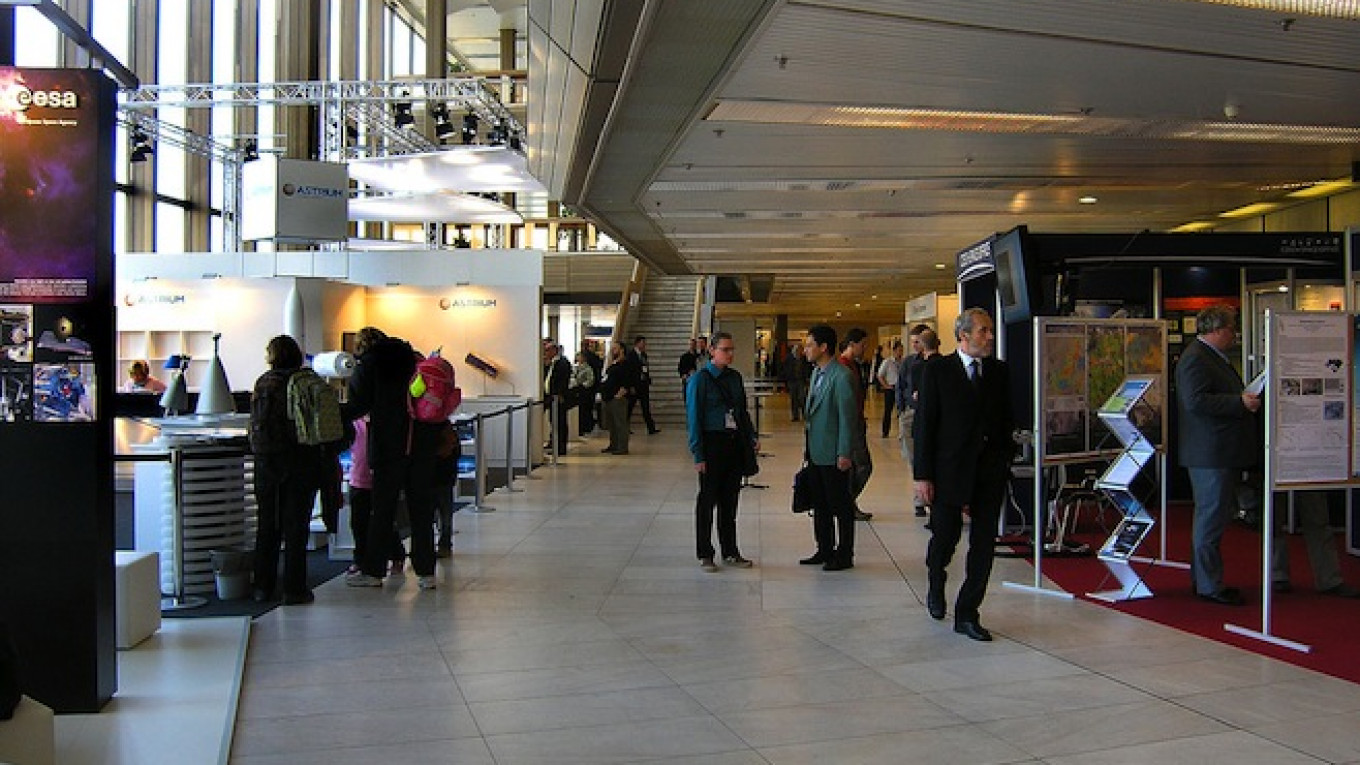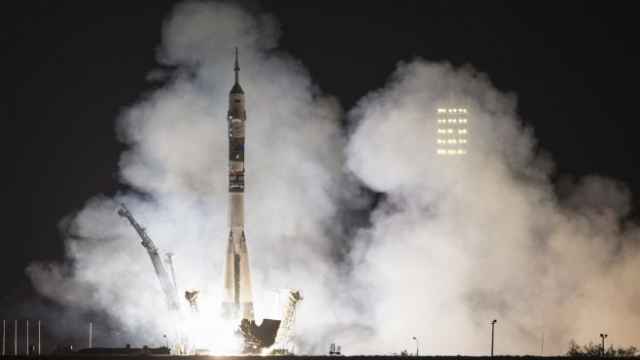Canada denied visas to Russian space officials — including famed cosmonaut Sergei Krikalev — due to attend an international astronautics congress in Toronto, Russia's space agency said Tuesday, sparking criticism that Canada is politicizing global space cooperation over Moscow's actions in Ukraine.
One of the largest gatherings for the world's space community, the International Astronautical Congress met for the 65th time in Toronto on Monday to find empty chairs instead of Russian and Chinese delegates.
"All the visa applications were filed on time," Irina Zubareva, press secretary of Russia's space agency Roscosmos, told The Moscow Times on Tuesday. Visas were granted only to one department chief and a representative of Roscosmos' international office, she said, without elaborating on why the other visas might have been denied.
The conflict in Ukraine has polarized Russia's relations with the West to a degree unseen since the Cold War, but European governments and the U.S. have been careful to limit the impact of the crisis on international space cooperation.
Canada has taken a more aggressive line. Earlier this year, Ottawa canceled the export license for a satellite due to be launched on a Russian rocket, making Canada the only Western nation to expand punitive measures against Russia into the cosmic sphere.
Blame Canada
Roscosmos planned to send an eight-person delegation, headed by the agency's deputy director and chief of manned spaceflight programs, Denis Lyskov. But only two visas were approved.
An unidentified Roscosmos source told Interfax on Tuesday that the two delegates to receive their visas were the last to apply for them.
The source charged Canada with politicizing the space partnership.
Walter Natynczyk, head of the Canadian Space Agency, which is hosting the conference, deflected criticism to the Canadian Foreign Ministry, saying conference planners were only notified of the visa issues two days before the conference.
Chinese officials were also denied visas. Though NASA has long been banned by the U.S. Congress from working with Chinese space officials, it is not clear why Canada would reject the applications of Chinese delegates.
Natynczyk said the absence of the Russian and Chinese delegations created a gap in the agenda for a panel on the future of the International Space Station (ISS) and the development of the Chinese space program.
Russia and the U.S. are the two primary partners responsible for the ISS, a $100 billion project involving 15 nations. Earlier this year, in response to U.S. Sanctions, Russia threatened to end its participation in the project in 2020. No official word from Russian space officials on their future participation has been issued, leaving the fate of the project in the air.
Russian Fair Play
In August — in the fraught weeks following the downing of a passenger jet over eastern Ukraine by, according to angry Western leaders, separatists armed with Russian-supplied missiles — Roscosmos and the Russian Academy of Sciences hosted another major international space conference in Moscow.
The Committee on Space Research, or COSPAR, is considered one of the most prestigious scientific conferences in the field.
Scientists representing Ukraine and the U.S. were sparse. On the sidelines of the conference, attendees from the U.S. said NASA's contingent was limited to a few dozen scientists and representatives, who were either presenting research or participating in discussions.
But there were no reported incidents of the Russian Foreign Ministry denying Western visas for COSPAR, which has twice in its history been combined with the International Astronautical Congress.
Krikalev Speaks
Famed cosmonaut Krikalev, whose visa application was denied by Canada, told the TASS news agency on Tuesday that he did not think the decision to deny visas for the Russian delegation to the IAC was politically motivated.
"I didn't fly there [to Toronto] because the visa was not ready, there wasn't enough time. My documents were simply filed late, so this was expected," Krikalev was quoted by TASS as saying.
Krikalev, the world record holder for longest amount of time spent in space — 803 days — is no stranger to the international space community. He is a veteran of three U.S. space shuttle missions and the first ISS expedition, and even worked in NASA's mission control center in Houston to help support joint U.S.-Russian space missions.
Contact the author at bizreporter@imedia.ru
A Message from The Moscow Times:
Dear readers,
We are facing unprecedented challenges. Russia's Prosecutor General's Office has designated The Moscow Times as an "undesirable" organization, criminalizing our work and putting our staff at risk of prosecution. This follows our earlier unjust labeling as a "foreign agent."
These actions are direct attempts to silence independent journalism in Russia. The authorities claim our work "discredits the decisions of the Russian leadership." We see things differently: we strive to provide accurate, unbiased reporting on Russia.
We, the journalists of The Moscow Times, refuse to be silenced. But to continue our work, we need your help.
Your support, no matter how small, makes a world of difference. If you can, please support us monthly starting from just $2. It's quick to set up, and every contribution makes a significant impact.
By supporting The Moscow Times, you're defending open, independent journalism in the face of repression. Thank you for standing with us.
Remind me later.






